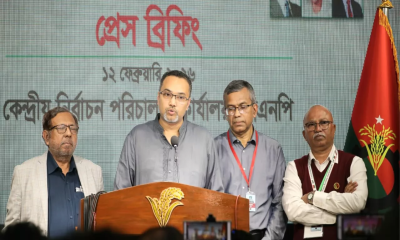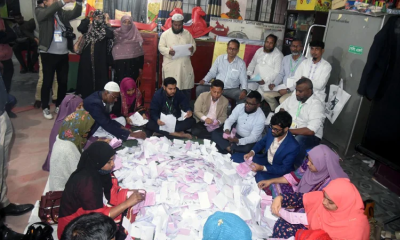Today, 15 August, marks the death anniversary of Bangabandhu Sheikh Mujibur Rahman. On this day in 1975, a group of mutinous army officers brutally assassinated him.
The horrific massacre at his residence on Road 32, Dhanmondi, remains one of the most heinous and barbaric events in history — and today marks its 50th year, reports Prothom Alo.
Alongside Bangabandhu Sheikh Mujibur Rahman, his wife Begum Fazilatunnesa Mujib, his three sons Sheikh Kamal, Sheikh Jamal, and young Sheikh Russel, daughters-in-law Sultana Kamal and Rozi Jamal, his only brother Sheikh Abu Naser, Colonel Jamil (who rushed to save him after receiving a phone call), Special Branch officer Siddiqur Rahman, and army member Syed Mahbubul Haque were all killed that night.
Another group of soldiers attacked the home of Sheikh Mujibur Rahman’s nephew, Sheikh Fazlul Huq Moni, a leader of the Awami Jubo League, killing him and his pregnant wife, Arzoo Moni. Bangabandhu’s brother-in-law Abdur Rab Serniabat’s residence was also attacked, leaving him, his daughter Baby, son Arif Serniabat, grandson Sukanto Babu, nephew Sajib Serniabat, and relative Abdul Naiem Khan dead.
Only Sheikh Hasina and Sheikh Rehana, who were in Brussels, Belgium at the time, survived.
It was not until 21 years later, in 1996, when the Awami League under Sheikh Hasina came to power, that the trial of the killers began. The government also declared 15 August as National Mourning Day and a public holiday.
On 8 November, 1998, a court sentenced 15 people to death in the Bangabandhu assassination case. The High Court later upheld the death penalty for 12 of them. So far, six have been executed, one died abroad, and five remain fugitives.
In 2009, the Awami League returned to power under Sheikh Hasina. For nearly 15 and a half consecutive years, the party marked 15 August and the 21 August grenade attack with month-long programmes, including paying tribute at Bangabandhu’s portrait at Dhanmondi 32 and at his grave in Tungipara, Gopalganj.
Last year, a mass uprising toppled the Awami League’s 15-year authoritarian rule. In the changed political context, 15 August is no longer a public holiday; the holiday was scrapped last year. On 5 August, during the uprising, Bangabandhu’s Dhanmondi 32 residence was set on fire and vandalised. Six months later, a second attack destroyed the house completely.
By the late 1960s, though many political figures were well-known in the country, Sheikh Mujibur Rahman had emerged at the forefront through his leadership.
Grounded in nationalist politics and forged through a long struggle, he became the undisputed leader of Bangladesh’s independence movement.
His 7 March, 1971 speech at the then Racecourse Ground (now Suhrawardy Udyan) inspired freedom fighters during the war. Standing before a sea of people, he declared, “This time, the struggle is for our freedom! This time, the struggle is for our independence!”


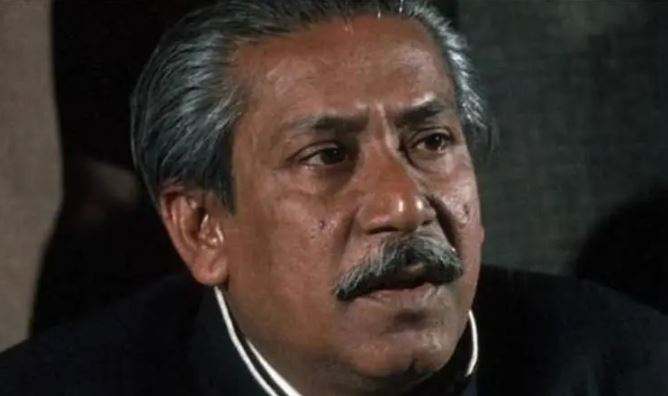

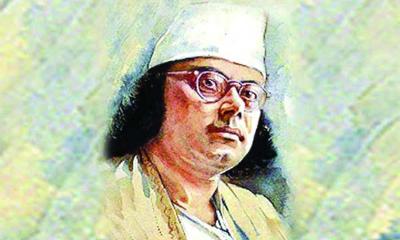
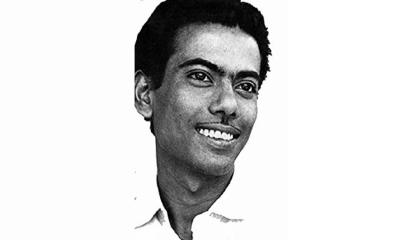
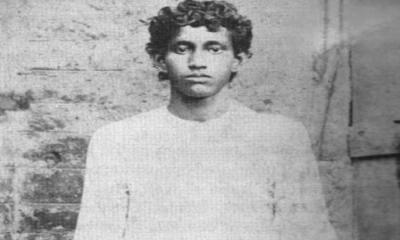
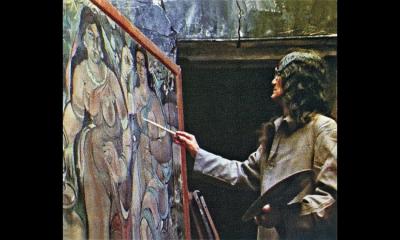

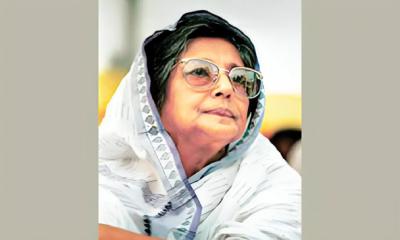


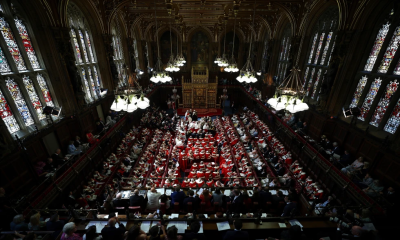




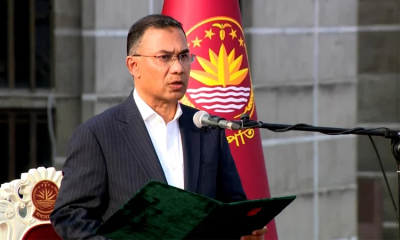
-20260218060047.jpeg)



-20260217073221.webp)















